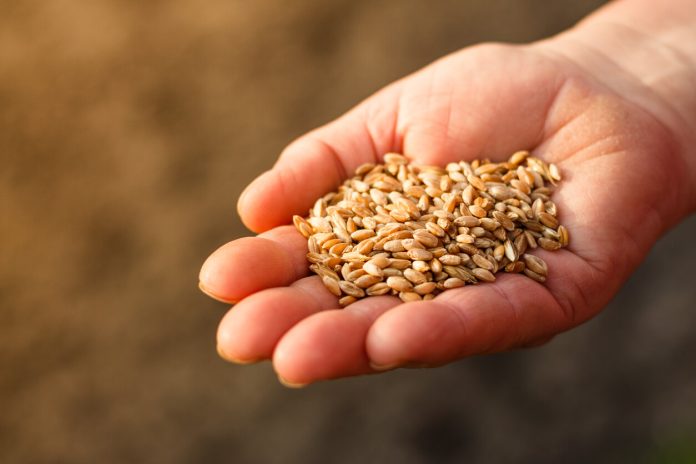When it comes to cultivating your garden or starting a new agricultural venture, choosing the right seed bank is crucial. The quality of the seeds you use will directly impact your success. With so many options available, it can be daunting to determine which seed bank is the most reliable. This guide will help you understand the essential criteria for selecting a trustworthy seed bank, ensuring you make the best choice for your needs.
Reputation and Customer Reviews
One of the first things to consider when selecting a seed bank is its reputation. A seed bank with a solid reputation is more likely to provide high-quality seeds and excellent customer service. Look at customer reviews and testimonials to gauge a seed bank’s reputation. These can give you a good idea of other customers’ experiences and whether they were satisfied with the seeds they received.
In addition to customer reviews, check if the seed bank has any industry awards or recognitions. These accolades indicate that the seed bank has been recognized by experts for its quality and reliability. However, don’t rely solely on awards; customer feedback is often a more accurate reflection of a company’s day-to-day operations.
Word of mouth can also be a powerful indicator of a seed bank’s reliability. Ask friends, family, or fellow gardeners for recommendations. Personal experiences and referrals can provide valuable insights you won’t find online.
Finally, consider the seed bank’s longevity. A company that has been in business for many years is likely doing something right. Longevity often suggests the seed bank has a history of satisfied customers and consistent quality. However, don’t completely discount newer seed banks, especially if they have positive reviews and make a name for themselves in the industry.
Seed Quality and Variety
The quality of seeds is arguably the most important factor to consider when selecting a seed bank. High-quality seeds will have better germination rates, leading to more successful plants. To assess seed quality, look for information on the seed bank’s sourcing and testing practices. Reliable seed banks often provide details about where they source their seeds and how they test them for quality.
A diverse selection of seeds is also important. A good seed bank should offer a wide variety of seeds to choose from, including different strains, species, and hybrids. This variety allows you to find the perfect seeds for your specific needs, whether you’re growing vegetables, flowers, or specialty plants. A diverse inventory also indicates that the seed bank is well-established and knowledgeable about different types of plants.
Pay attention to the seed bank’s packaging as well. Quality seeds should be packaged to preserve their freshness and viability. Look for seed banks that use moisture-proof and air-tight packaging, as these methods help extend the shelf life of the seeds and maintain their quality.
Additionally, consider whether the seed bank offers information about the seeds they sell. Detailed descriptions, including information about growth habits, climate preferences, and potential yields, can help you make more informed decisions. Some seed banks even provide growing guides and tips, which can be especially helpful for novice gardeners.
Customer Service and Support
Customer service is another critical aspect to consider when choosing a seed bank. A company that stands behind its products and is willing to assist its customers can make your purchasing experience much smoother and more enjoyable. Look for seed banks that offer clear and accessible contact information, such as phone numbers, email addresses, and live chat options.
A responsive customer service team can help you with any questions or concerns you might have about their products. Whether you need assistance choosing the right seeds, understanding planting instructions, or resolving an issue with your order, good customer service can make a big difference.
Additionally, check if the seed bank has a return or exchange policy. Mistakes happen, and you want to ensure that you have options if you receive the wrong seeds or if the seeds fail to germinate. A fair and transparent return policy shows that the seed bank is confident in its products and committed to customer satisfaction.
Another important aspect of customer service is the availability of resources and support. Some seed banks offer educational materials, such as articles, videos, and forums, where customers can learn more about gardening and get expert advice. These resources can be incredibly valuable, especially if you’re new to gardening or looking to expand your knowledge.
Finally, consider the seed bank’s shipping options and delivery times. Reliable seed banks should provide clear information about their shipping policies, including delivery times, costs, and any potential delays. Fast and reliable shipping ensures that you receive your seeds in a timely manner, allowing you to start planting without unnecessary delays.
Selecting a reliable seed bank is crucial for the success of your gardening or agricultural projects. You can make an informed decision that meets your needs by considering factors such as reputation, seed quality and variety, and customer service and support. Remember, the key to a thriving garden starts with high-quality seeds from a trustworthy source. Happy planting, and check out SF Weekly if you want to learn about the best seedbanks!




































